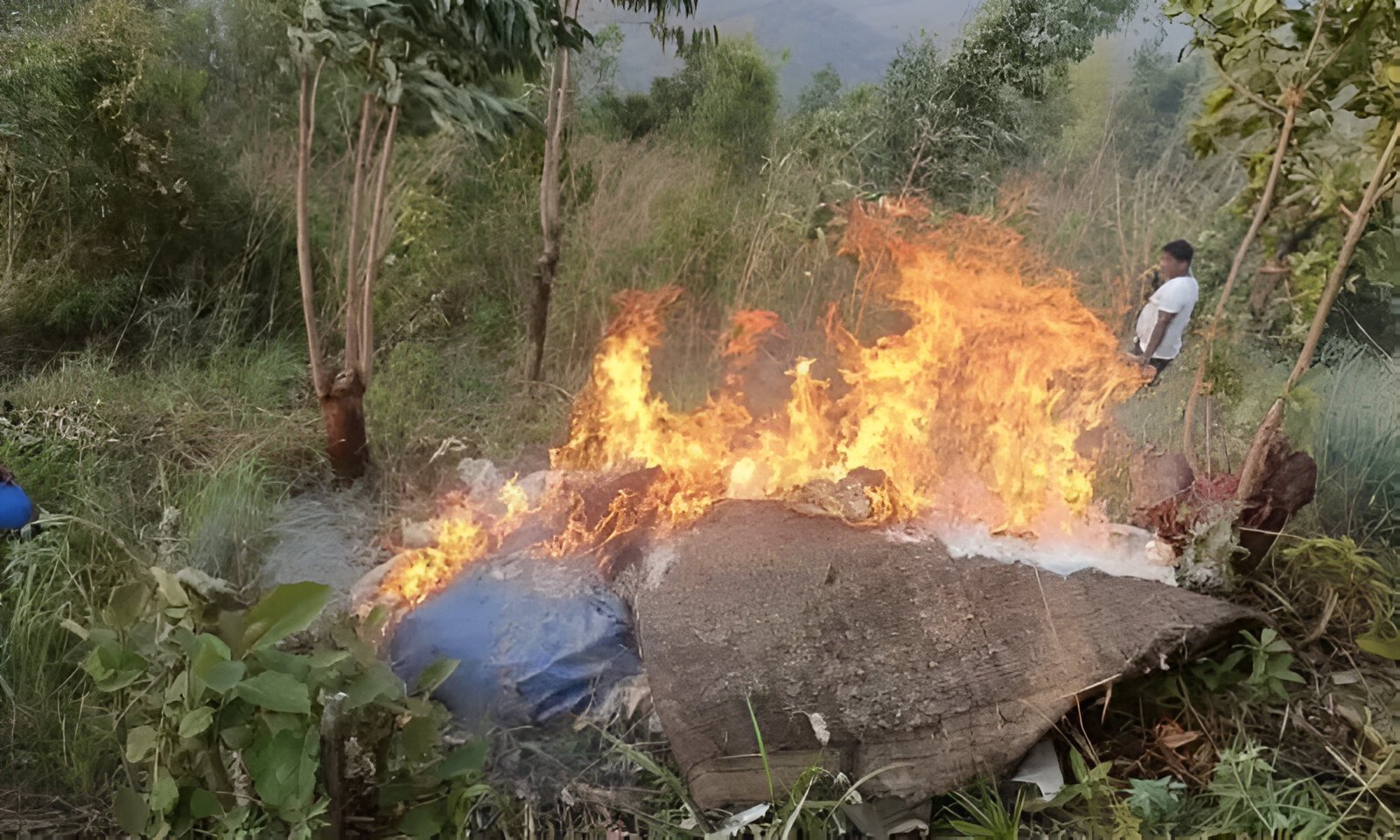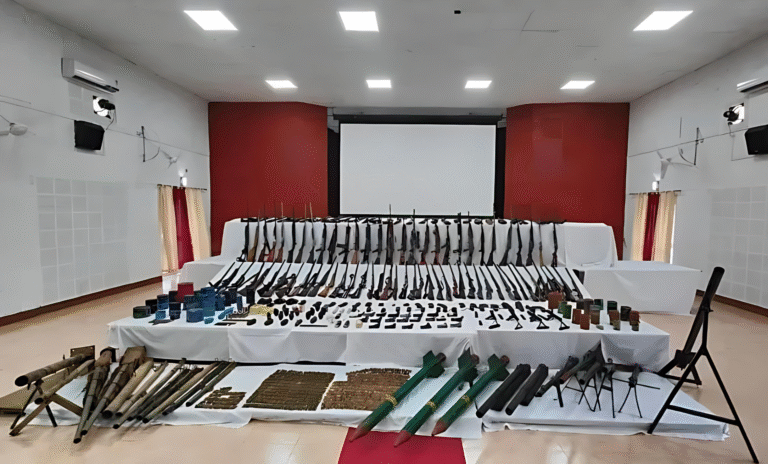Manipur Security Forces Dismantle Bunkers in Kangpokpi: A Step Towards Restoring Peace
Summary of Recent Operations
On March 28, 2025, combined security forces in Manipur, including central security personnel and state police, conducted a coordinated operation in the Ponlen hill ranges under Kangchup police station in Kangpokpi District. This initiative led to the dismantling of bunkers allegedly established by suspected Kuki militants. Upon the approach of the security forces, the militants reportedly fled, allowing the forces to destroy the bunkers without direct confrontation. An FIR has been registered concerning this operation. This action follows a similar operation on March 1, 2025, where two bunkers were dismantled in the Wakan Ridge and Mark Hills Ridge areas of Kangpokpi district.
Understanding the Context: The Significance of Kangpokpi
Kangpokpi District, nestled in the northeastern state of Manipur, has been a focal point of ethnic tensions and insurgent activities. The region’s strategic location, bordering Imphal West, makes it a critical area for maintaining peace and security. Historically, the district has witnessed various conflicts, primarily involving different ethnic groups vying for territorial dominance and political influence.
The Emergence of Bunkers: Symbols of Conflict
In conflict-prone areas like Kangpokpi, the establishment of bunkers by militant groups has been a common tactic. These structures serve as defensive positions, enabling militants to monitor movements, store weapons, and launch operations. The presence of such bunkers not only signifies the entrenchment of militant activities but also poses a direct threat to the safety and security of local communities.
The March 28 Operation: A Detailed Account
Acting on credible intelligence about the presence of anti-social elements in the secluded Ponlen hill ranges, the combined security forces launched a meticulously planned operation. The team, comprising central security personnel and Manipur Police, approached the suspected hideout with caution. Sensing the arrival of the forces, the militants abandoned their positions and fled, avoiding direct engagement. The security personnel then proceeded to dismantle and set fire to the bunkers, effectively neutralizing the immediate threat. An official FIR was lodged to document the operation and facilitate further investigations.
Historical Precedents: Patterns of Militant Activities
The dismantling of bunkers in Kangpokpi is not an isolated incident. For instance, in December 2024, security forces conducted operations to remove bunkers in the Saibol area, leading to significant confrontations with local communities. These recurring patterns underscore the persistent challenges faced by security forces in curbing militant activities and restoring normalcy in the region. Wikipedia
Community Impact: Striving for Normalcy Amidst Unrest
The continuous cycle of conflict and security operations has profoundly impacted the local communities in Kangpokpi. While the dismantling of militant bunkers is aimed at ensuring long-term peace, the immediate aftermath often includes heightened tensions and disruptions to daily life. Incidents of protests and clashes between security forces and civilians have been reported, highlighting the delicate balance between enforcing security measures and maintaining public trust. Wikipedia
Challenges in Counter-Insurgency Operations
Conducting counter-insurgency operations in regions like Kangpokpi presents multifaceted challenges. The difficult terrain, coupled with the militants’ intimate knowledge of the landscape, complicates the efforts of security forces. Additionally, the potential for collateral damage and civilian casualties necessitates a cautious approach, often limiting the use of heavy artillery or air support. Building and maintaining trust with local communities is crucial, as their cooperation can significantly enhance intelligence gathering and operational success.
The Role of Dialogue and Reconciliation
While military operations are essential in addressing immediate threats, long-term peace in Kangpokpi and similar regions requires sustained dialogue and reconciliation efforts. Engaging with various stakeholders, including community leaders, civil society organizations, and even former militants, can pave the way for addressing underlying grievances and fostering a sense of inclusivity and understanding.
Looking Ahead: Prospects for Peace and Development
The dismantling of bunkers and the reduction of militant activities open avenues for developmental initiatives in Kangpokpi. Investing in infrastructure, education, and healthcare can address some of the root causes of unrest, such as economic disparity and lack of opportunities. Empowering local communities through participatory governance and ensuring equitable resource distribution can further solidify the foundations of lasting peace.
FAQs
- What prompted the recent security operation in Kangpokpi?
- The operation was initiated based on intelligence reports indicating the presence of suspected Kuki militants and their bunkers in the Ponlen hill ranges.
- Were there any casualties during the operation?
- No casualties were reported as the militants fled upon the arrival of security forces, allowing for the dismantling of bunkers without direct confrontation.
- How do such operations impact the local civilian population?
- While aimed at enhancing security, these operations can lead to temporary disruptions and heightened tensions within local communities.
- Have there been similar operations in the past?
- Yes, similar operations have been conducted, including one on March 1, 2025, targeting bunkers in the Wakan Ridge and Mark Hills Ridge areas.
- What measures are being taken to ensure long-term peace in the region?
- Beyond security operations, efforts include promoting dialogue, investing in development projects, and engaging local communities in peacebuilding initiatives.




